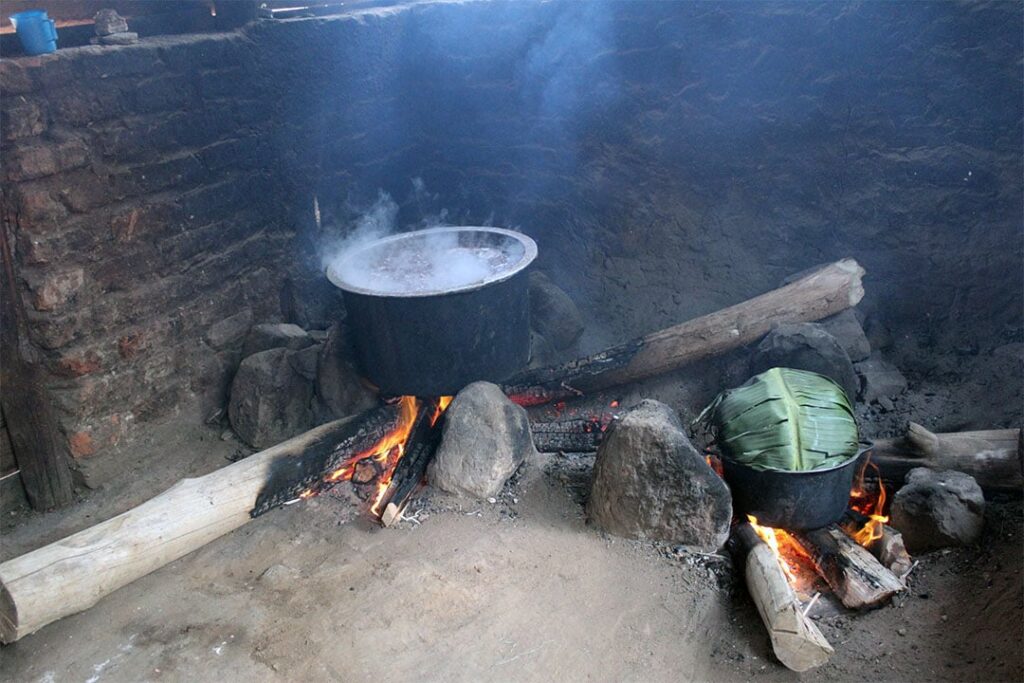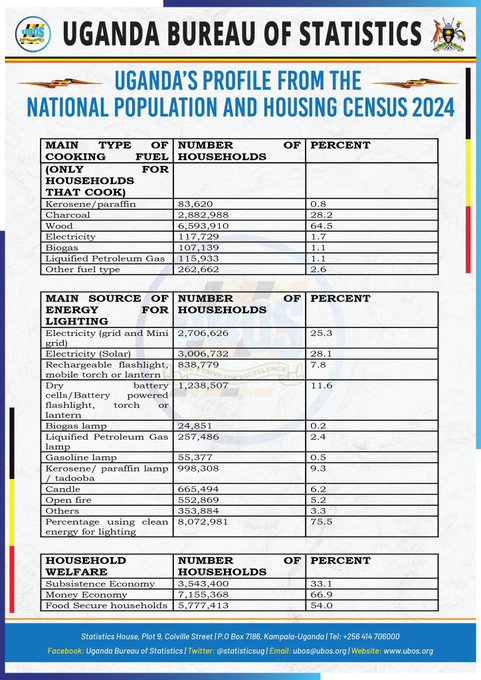Kampala, Uganda – The Uganda Bureau of Statistics (UBOS) released the final report of the National Population and Housing Census 2024, highlighting trends in energy usage across households.
The data reveals a significant shift towards cleaner energy sources for lighting, but challenges persist in transitioning away from traditional cooking fuels.
Lighting
A majority of Ugandans (75.5%) now use clean energy sources for lighting, with electricity (grid and solar) being the most popular option. This marks a significant improvement in access to cleaner and more reliable lighting solutions.
Cooking
Charcoal remains the dominant cooking fuel, used by 28.2% of households. Wood is also widely used (64.5%), highlighting the reliance on traditional and often polluting fuels.

Household Welfare
A majority of households (66.9%) are classified as being in the “Money Economy,” indicating a shift towards market-based livelihoods. Food security remains a challenge, with 54% of households considered food secure.
Analysis and Implications
The data underscores the progress made in improving access to clean lighting solutions but also emphasises the need for continued efforts to promote cleaner cooking fuels.
The reliance on charcoal and wood has significant environmental and health implications, contributing to deforestation and air pollution.
The government and stakeholders can leverage these insights to promote cleaner cooking fuels. Initiatives to promote the adoption of cleaner cooking fuels, such as LPG, biogas, and improved cookstoves, are crucial for improving air quality and reducing deforestation.
The government can expand access to electricity. Continued investments in expanding electricity grids and promoting renewable energy sources like solar power are essential for ensuring access to clean and affordable energy.
Policies and programmes aimed at increasing agricultural productivity, improving access to markets, and promoting food diversification are necessary to ensure food security for all Ugandans.










